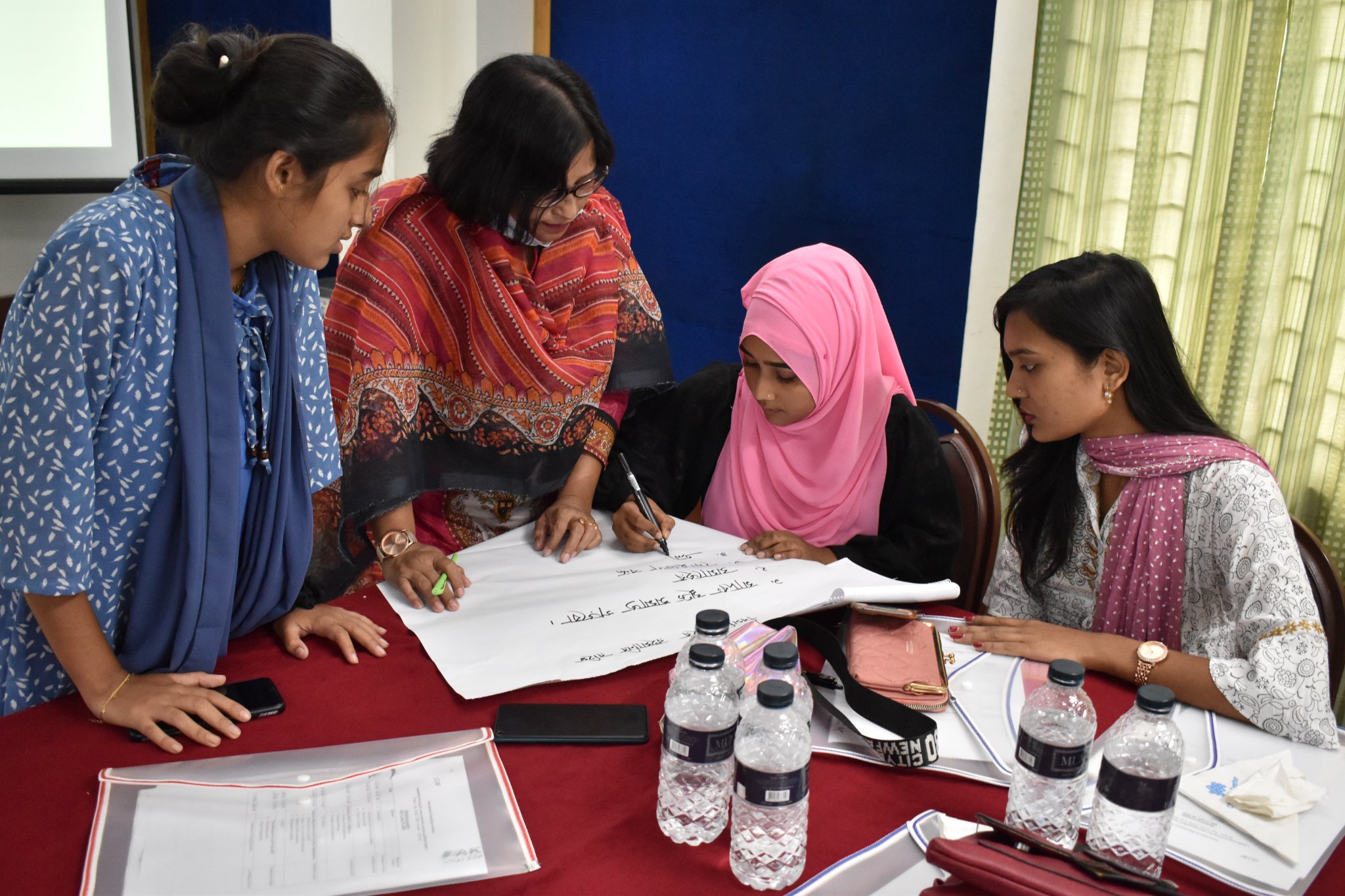
With just over one year to go before Bangladesh’s next national election—scheduled for January 2024— female political leaders are working to make their voices heard in Bangladeshi politics. The International Republican Institute (IRI) is supporting this effort through a multidimensional training program.
In 2021, IRI completed an analysis on the barriers women face in politics. Interviews with female politicians found that patriarchal attitudes and a lack of funding, skills, and holistic networks hold women back. To help fill this gap, IRI developed a women’s political empowerment program that has three key components: build networking and communication skills, strengthen leadership ability, and identify and leverage male allies. By addressing these needs, women can improve their position in politics moving forward.
Networking and Social Media Skills Trainings
Networking and social media use are vital skills in contemporary politics. Building a women’s network opens the opportunity for women leaders to access connections, information, assistance, and other resources that can eventually lead to more women winning elections and advancing in parties. Furthermore, social media has become an indispensable tool for political messaging and organizing.
All around the world, women’s leadership is questioned. Networking is very important for our development.
Recognizing this, IRI conducted a series of dialogues with women political leaders from the Awami League (AL) and Bangladesh Nationalist Party (BNP) to bolster participants’ understanding of the role and impact of networking and social media in politics as well as international best practices to utilizing these skills and overcome challenges.
During one of the dialogues, a female senior Central Committee member said, “All around the world, women’s leadership is questioned. Networking is very important for our development.”
Beyond skills building, another benefit of these initiatives was convening women political leaders from different levels and areas in a single room to share their activities and help each other grow. The dialogues gave local officials and student leaders an opportunity to connect with national-level leaders to exchange ideas and experiences.
Leadership Trainings
Beyond networking and social media use, a range of other skills are also needed for success in politics. To help build this wide-ranging skillset, IRI conducted a series of leadership trainings for young female political leaders around Bangladesh. These trainings included practical topics for young leaders such as self-confidence, time management, conflict resolution, decision-making, public speaking, and media engagement.
The trainings were also an opportunity to bring together women from across Bangladesh’s political divide to discuss, collaborate, and learn with each other. Bangladeshi politics is often polarized and hostile; but in the room, participants interacted cordially and found areas of mutual concern.
“We need more of this type of training,” one participant said afterward. “I highly recommend this training for my fellow women colleagues, particularly women student leaders.”
Male Ally Trainings
Women cannot transform politics alone; they need male allies. Utilizing the Transformative Alliances Toolkit (TAT) developed by IRI’s Women’s Democracy Network, IRI conducted a series of online training sessions with women from the sub-national level, national level, and student wings of the AL and BNP.
TAT training modules on the “male ally continuum” and other topics helped young women political leaders develop strategies for identifying male allies and building inclusive coalitions to promote women’s advancement in political parties as well as to support women’s economic and social empowerment in Bangladesh.
A training participant said, “Not all the men will support us, but there are at least a few men who will stand for us, and we should take their help to progress.”
Accelerating Bangladesh’s Progress
Bangladesh has made notable progress on gender equity in society and the economy, but politics lags behind. The percentage of women in ministerial positions and on party central committees is low. With more male allies and greater hard and soft skills, aspiring women leaders can better influence decisions and win elections. Moving forward, IRI plans to rapidly expand its women’s empowerment activities to ensure that Bangladesh’s next national election includes more female voices than ever before.
Top